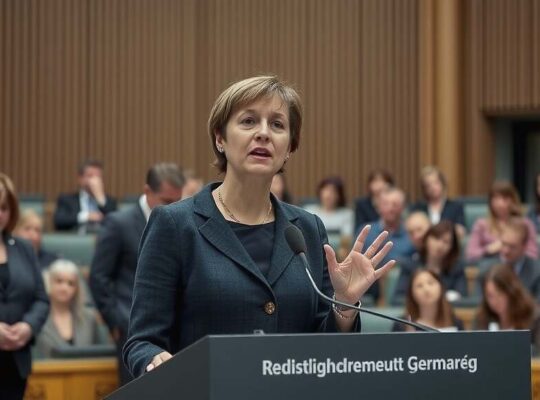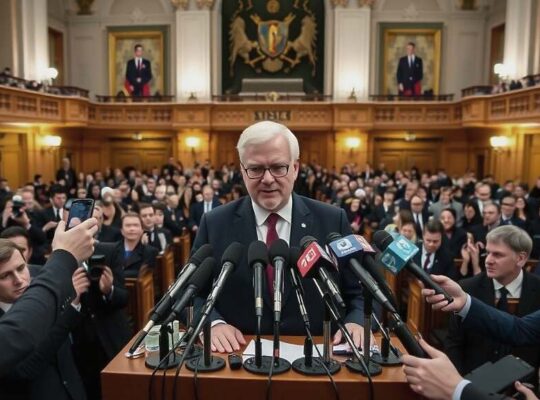The failure of Die Linke’s Clara Bünger to secure a seat on the Parliamentary Control Committee (PKGr) has ignited a sharp rebuke from the SPD, exposing fractures within the German Bundestag and raising serious questions about the committee’s impartiality. Despite acknowledging Bünger’s qualifications and suitability for the crucial role, the SPD’s parliamentary group deputy leader, Sonja Eichwede, expressed shock at the outcome, highlighting its significance for ensuring genuine opposition representation.
Eichwede, herself a member of the PKGr, emphasized the necessity of diverse perspectives, particularly from opposition parties, to maintain the committee’s neutrality and effectiveness. Her continued advocacy for Bünger’s nomination underscores the SPD’s concern that the outcome was politically motivated rather than a reflection of the candidate’s merits.
Bünger’s response was equally pointed, directly accusing the CDU and CSU of “democracy-endangering” behavior and deeming their actions “unworthy of a governing party”. She viewed the rejection as a personal defeat for CDU faction leader Jens Spahn, suggesting the episode reveals a growing lack of control within the CDU ranks and potentially undermining his leadership. The limited 271 votes received by Bünger, falling 45 short of the required threshold, fuels speculation that a concerted effort was undertaken to block her candidacy.
The controversy shines a stark light on the power dynamics within the Bundestag and the potential for partisan maneuvering to influence the composition of a body tasked with overseeing intelligence agencies and governmental oversight. Concerns are mounting that the outcome risks eroding the PKGr’s credibility, casting doubt on its ability to function as an independent check on executive power. The incident will likely trigger intensified scrutiny of the nomination process and renewed calls for greater transparency and consensus-building to ensure a truly representative and effective Parliamentary Control Committee.












